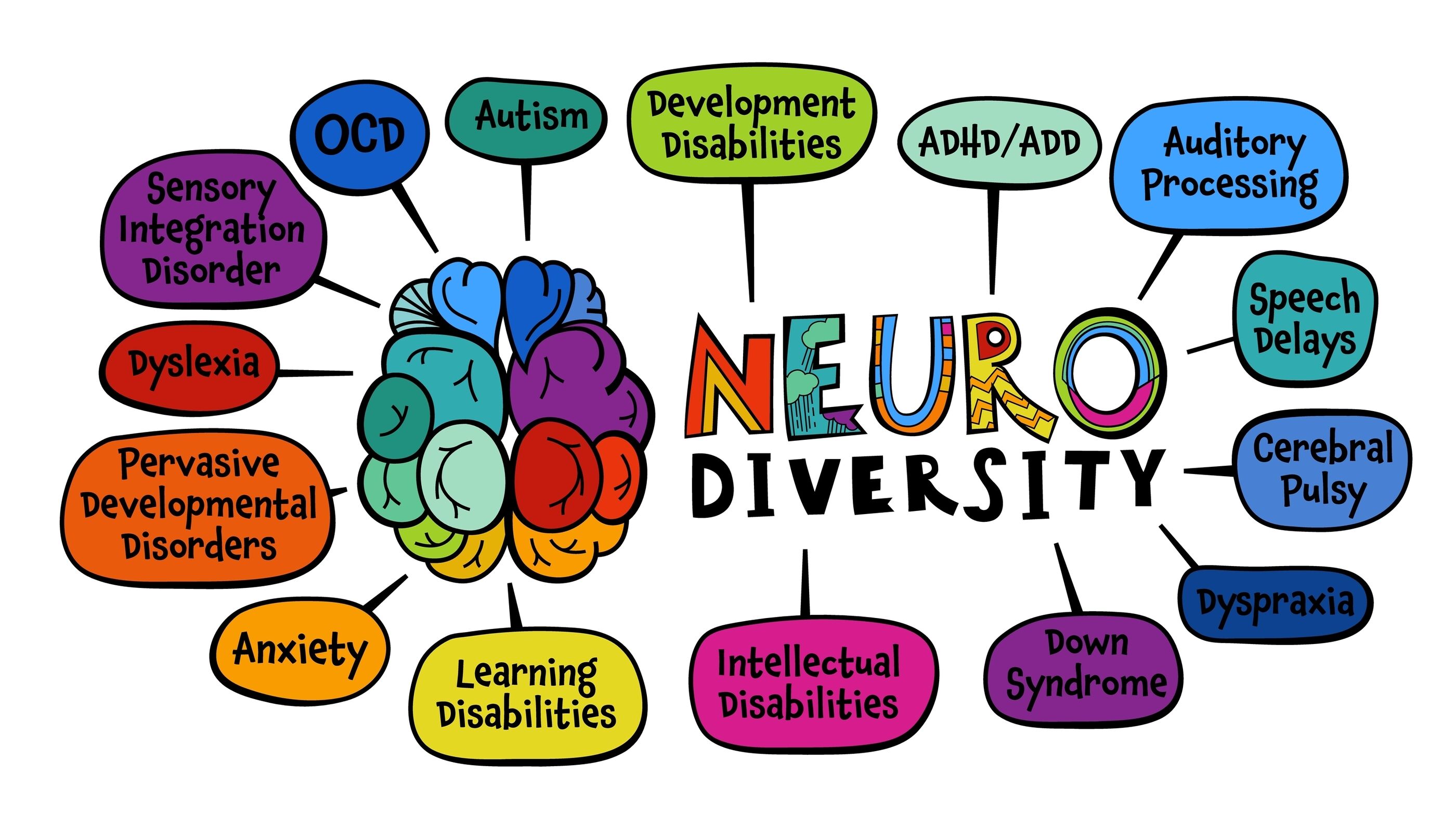Kalmer Counselling Sessions
Our Counselling sessions are 50 minutes either online or in person and cost £50 - £65 depending on the counsellor.
Contact UsAt Kalmer Counseling, we understand the mental health challenges faced by individuals with neurodivergence, such as Autism (ASD), ADHD, Dyslexia, and more. Our team is dedicated to providing compassionate, specialised care for those who may struggle with anxiety, depression, sensory overload, and emotional dysregulation. We offer a safe and supportive space in the North East for clients of all ages to explore these issues, while helping to develop personalised strategies for coping with stress, social difficulties, and the overwhelming demands of daily life. Whether you are dealing with persistent anxiety, burnout, or feelings of isolation, Kalmer Counselling are here to support you.
In addition to mental health concerns, our service focuses on helping neurodivergent individuals improve executive functioning skills, navigate social relationships, and manage the emotional and sensory challenges that often arise. We provide tools and guidance for handling issues like time management, organisation, and emotional regulation, which can be particularly tough for those with ADHD or Austism. Our counsellors work closely with clients to improve communication, self-advocacy, and understanding in both personal and professional relationships. Our goal is to create an environment where neurodivergent individuals feel empowered and supported, building on their strengths while managing their unique mental health needs.

There are some general biases when it comes to gender responses.
Gender biases in the understanding and response to neurodivergence often lead to significant disparities in diagnosis, treatment, and support. For example, neurodivergent women and girls, particularly those with Autism and ADHD, are frequently underdiagnosed or misdiagnosed because their symptoms may manifest differently from the typical presentations observed in men and boys.
Women often engage in “masking,” a behaviour where they consciously or unconsciously hide their neurodivergent traits to fit social norms, making their challenges less visible to professionals. Women tend & befriend when stressed so pursue safe relational bonds and seek close proximity to others. Women are taught in society to internalise their thoughts and feelings. This can result in delayed diagnosis, untreated mental health issues, and a lack of appropriate support. Additionally, societal expectations around gender roles can influence how neurodivergent behaviours are perceived—boys may be more likely to be labelled as "disruptive" or "hyperactive," while girls may be viewed as simply "shy" or "quiet," further skewing how their neurodivergence is recognised and addressed.
These biases reinforce gendered stereotypes, leaving many neurodivergent individuals, particularly women and non-binary people, without the understanding or care they need.
The current pressing issues affecting autistic children and young people (CYP) are self-harm, suicidal ideation and suicide. We have numbers rising and a hidden crisis, particularly amongst our autistic community.
Autistic people are at a higher risk of suicide than non-autistic people.
Up to 66% of autistic adults had thought about suicide during their lifetime, and up to 35% had planned or attempted suicide. National Autistic Society
Autism spectrum disorder (ASD) or Autism, as the autistic community like it to be referred as, can greatly impact the way a person experiences their life. It can influence communication, social interactions, relationships, sensory processing and emotional regulation. All of this can be really challenging to deal with and can have such a negative impact upon mental health. Counselling can help individuals to understand more about their autistic identity, explore strategies to help manage their challenges which will positively impact their overall wellbeing, building confidence and self-esteem.
Find out more
Attention Deficit Hyperactivity Disorder (ADHD) is a neurodevelopmental condition that impacts parts of the brain that help to plan, focus and execute tasks. It affects millions of individuals both children and adults. Many report a struggle to regulate their emotions, concentration and energy making daily tasks challenging. Counselling can provide critical support for managing ADHD by offering tailored interventions, strategies, and tools to cope with symptoms. Through our integrative approach which is a blend of behavioural therapy, psychoeducation, psychological and emotional support, Kalmer counselling offers a structured path to help individuals navigate the complexities of their ADHD.
Find out more
At Kalmer Counselling our counselling is as unique as you are, therefore we adapt our approach to your needs, experiences and the impact dyslexia has had on you. We can work with you to understand and get to know your dyslexia in order to develop coping strategies and build self-esteem and confidence. We work with children, young people and adults with a recent or historic diagnosis.
Dealing with Dyslexia

Studies show that individuals with dyscalculia often suffer from low self-esteem, with about 50% of individuals reporting feelings of inadequacy due to their struggles with maths. Our Counsellors can work with you to allow you to understand and embrace Dyscalculia.
Dealing with Dyscalculia
Dyspraxia, also known as Developmental Coordination Disorder (DCD), is a neurological condition that affects a person’s ability to plan and coordinate physical movements. It can lead to difficulties with tasks requiring fine and gross motor skills, such as handwriting, dressing, or participating in sports. Dyspraxia is not related to intelligence, but it can make learning and everyday activities more challenging. People with dyspraxia may also struggle with organisation, time management, and processing information, which can impact their academic and social lives.

Our Counselling sessions are 50 minutes either online or in person and cost £50 - £65 depending on the counsellor.
Contact Us